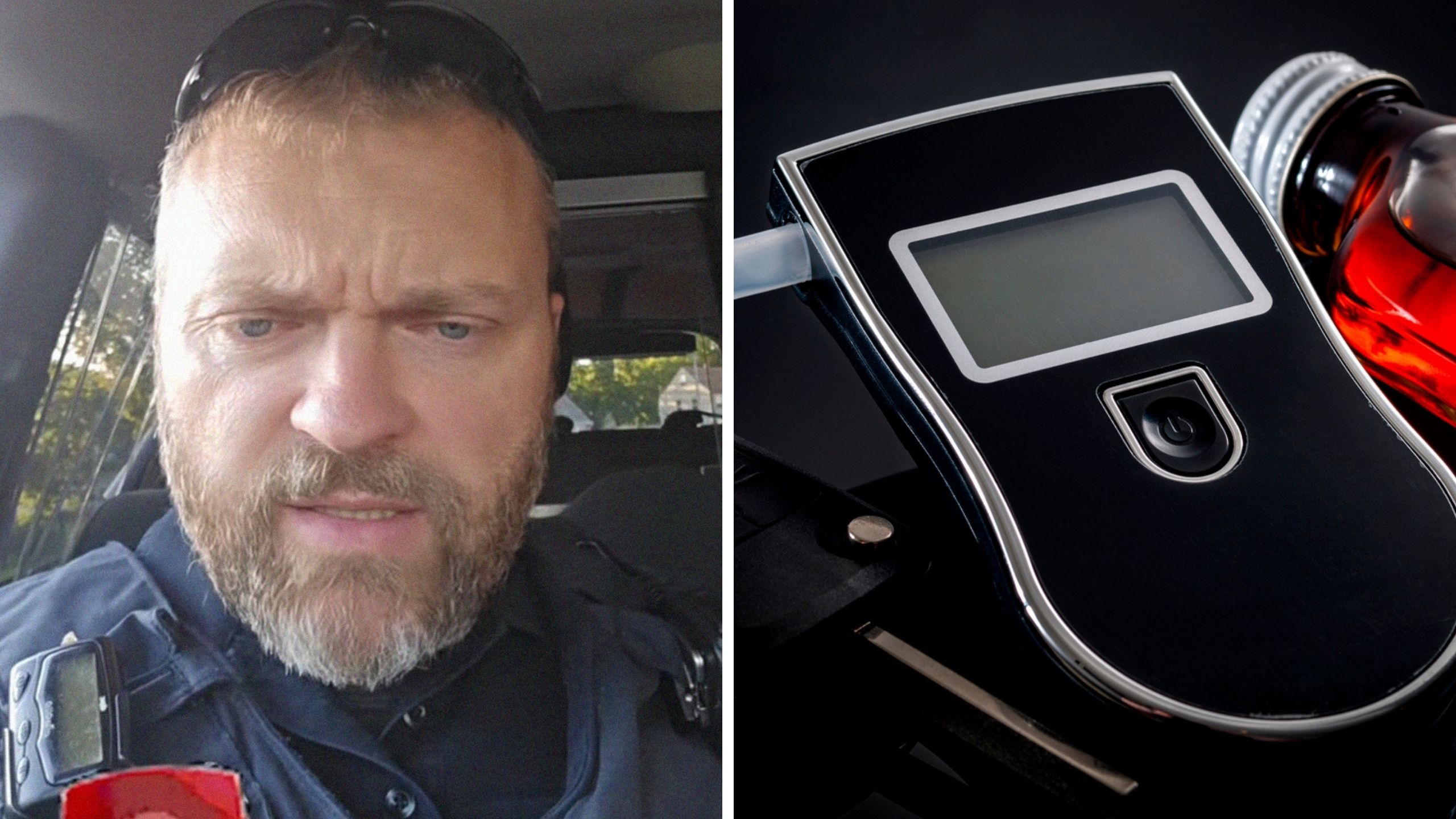
Audio By Carbonatix
Getting pulled over with the suspicion of being under the influence is never a good time. But if it happens, the cop is probably going to do one of two things.
In some cases, the police officer might offer you a breathalyzer, or preliminary breath test. This is a machine that determines blood alcohol content by having a suspect blow into it. If you’re under the legal limit of 0.08, you’re generally fine.
In others, a police officer might ask you questions and request that you perform a field sobriety test. This generally involves an officer asking you to perform a series of tasks to see if you are too impaired to drive.
The problem? As one officer explains in a recent viral TikTok video, these tests don’t exactly work all the time. And, despite this, failing one could be a long-running stain on your record.
Why Should You Refuse A Field Sobriety Test?
In a video with over 74,000 views, a police officer on TikTok (@police_g0tur6) explains why he, personally, “wouldn’t do [the] field sobriety test.”
The problem, he says, stems in large part from the fact that these tests do not take into account the other factors that could cause one to fail that do not involve alcohol or drugs.
“Most people—even people that aren’t intoxicated—a lot of times, they either have a disability. They’re on medication,” he says. “Sometimes, people just aren’t that coordinated. And if you stepped off the line, if you didn’t do the ‘walk and turn’ right, if you put your foot down to keep your balance, whatever, and you’re not intoxicated, you’re gonna fail that test.”
He notes that you can refuse a field sobriety test. However, an officer can still detain you under the probable cause that you had consumed alcohol and drugs and were continuing to drive. Still, he adds that an officer will then likely ask you to perform a breathalyzer test or a blood test to determine your blood alcohol content. Refusing these tests is more difficult. Doing so can result in your license being taken.
“And I hope to god, before you do anything else at that point, say, ‘I would like to speak to a lawyer,’” he shares.
Does The Field Sobriety Test Really Work?
There’s some evidence to suggest that officers can use field sobriety tests to determine whether a driver is impaired with significant accuracy. However, many of these tests are simply up to the officer’s interpretation. And that means that there can also be a significant margin of error.
For example, one 1994 study provided law enforcement officers with 21 videos of people performing “a variety of field sobriety tests.” All of the videos were of sober individuals. The officers did not know this. Consequently, they estimated that 32% of the people shown were above the legal limit despite consuming no alcohol.
Depending on the state, one may be able to refuse a field sobriety test, provided they do not have a commercial driver’s license. That said, a driver will then likely have to take a breath, blood, or urine test. That means that if you truly are over the legal limit, you can’t get out of punishment by simply refusing to take the test.
Commenters Don’t Like the Test
In the comments section, many users questioned why tests like these were still in place if even officers say they would refuse them. And, if this is the case, why should the results of these tests be trusted?
“And sometimes, the police just lie about what they see to make the arrest,” wrote a user. In another comment, they added, “I was taken off camera, did the field sobriety test and arrested. Cop also turned off his microphone. DA did not prosecute but I still spent 6 hours in jail. No repercussions to the highway patrol officer.”
“Never consent for a [field sobriety test],” added another. “The officer has decided that you are intoxicated by that point. He’s just looking for additional evidence to show in court.”
“I passed them all. Still got arrested lol. My lawyer said the best bet is to never do them and always refuse the roadside [Preliminary Breath Test],” offered a third. “Never refuse the pbt at the station though.”
BroBible reached out to the officer via TikTok direct message and comment.
